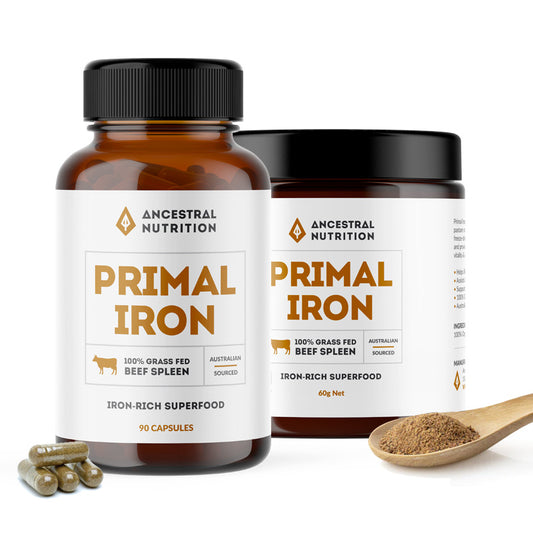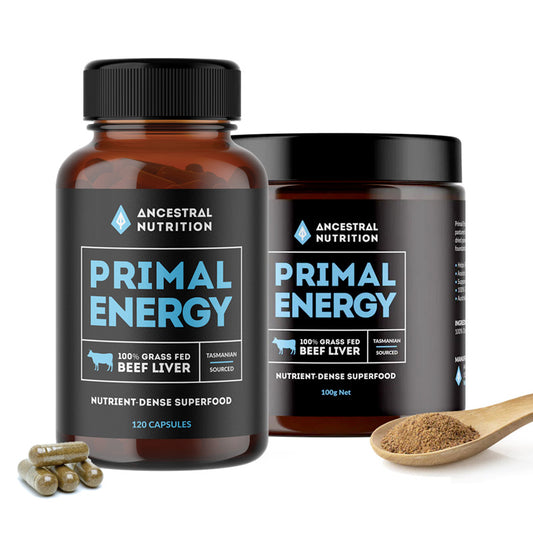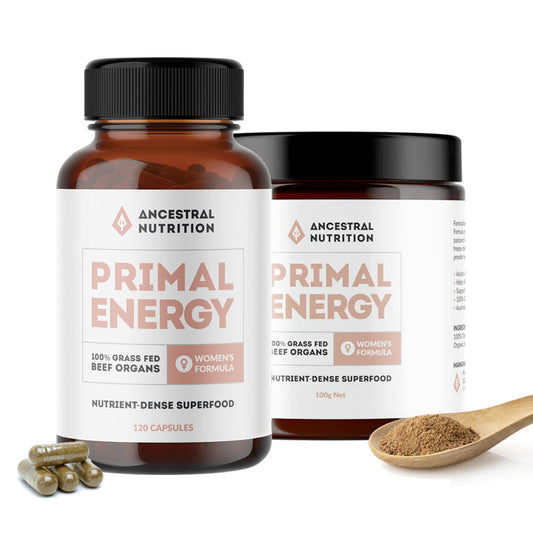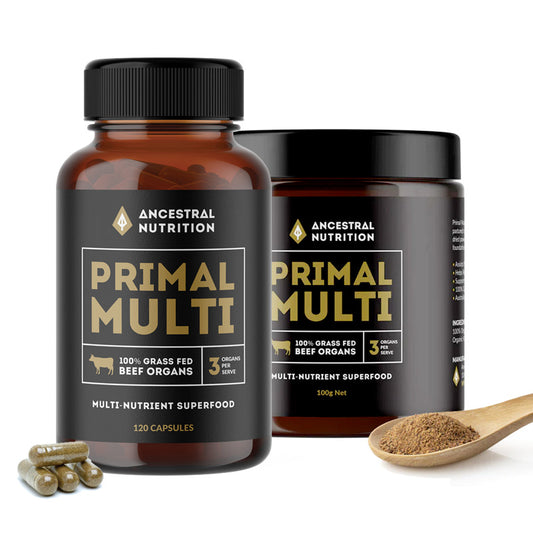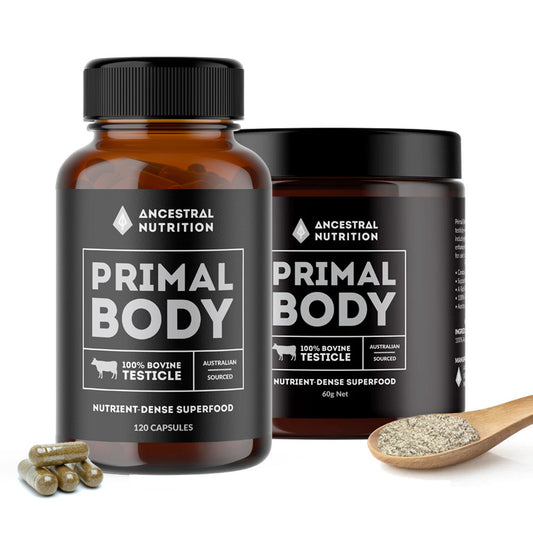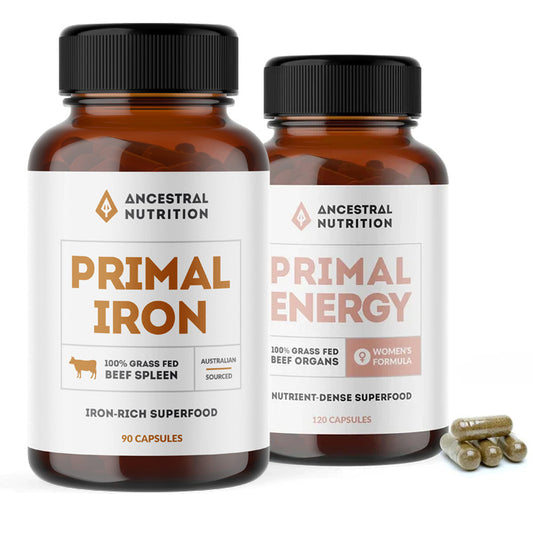The 5 Biggest Nutrition Myths Debunked
article by Emily Collyer
Are You Overwhelmed by All the Nutrition Advice Online?
In today's world, where everyone on the internet seems to be a self-proclaimed expert, making informed decisions about your health can feel overwhelming. Conflicting opinions, clickbait headlines, and "one-size-fits-all" advice often create more confusion than clarity.
In recent conversations, it's become clear that some of the most stubborn nutrition myths are still alive. So let's set the record straight and debunk five of the biggest ones. If any of these are new to you, i hope this gives you the confidence to speak on them with clarity next time they come up
1. Natural Sugars Are Better For You
There's a widespread belief that natural sugars like honey, maple syrup, dates, coconut sugar or rice malt syrup are healthier alternatives to granulated white sugar. Yes, some of these contain antioxidant properties and other health benefits, however if your goal is to reduce sugar, you might want to re-think eating these in abundance.
Honey contains more sugar per tablespoon than white sugar. While they are different foods, sugars are still sugars, which are a type of carbohydrate and the body will utilise it in the same way. From a metabolic standpoint, your body doesn't care whether it's sugar or natural sugar, it process it both the same way. So if your goal is to reduce sugar intake, swapping refined sugar for trendy alternatives isn't solving the problem - just changing the packaging.
This also applies to "raw" or "clean" treats. Yes, they contain forms of sugar and carbohydrate with better nutritional properties, but at the end of the day, a cocktail of dates will still add up to the same, if not higher, calorie and sugar contend as a chocolate bar.
2. Cruciferous Vegetables Harm Your Thyroid
You may have heard that broccoli, cauliflower and kale are bad for your thyroid because they are goitrogenic - meaning they contain compounds that can interfere with iodine uptake in the thyroid
But here's the truth:
- This effect only becomes a concern when cruciferous vegetables are eaten raw in very large amounts
- Cooking (steaming or boiling) significantly reduces goitrogenic compounds
- These vegetables are rich in glucosinolates - powerful, health supporting plant compounds with antioxidant properties.
Unless you have an iodine deficiency and consume raw cruciferous veg excessively, theres no reason to avoid them. In fact, the benefits of these foods far outweighs any potential risks.
Most importantly, thyroid dysfunction is more commonly driven by under eating, over training stress and autoimmune conditions, not a few servings of broccoli.
3. You Should Eat Small, Frequent Meals All Day
This one has been around for decades: the idea that eating every 2-3 hours "boosts metabolism" or "prevents insulin spikes"
Here is the current science:
- The thermic effect of food (how many calories your body burns digesting food) is based on how much you eat, not how often
- Eating fewer, balanced meals can actually improve your insulin sensitivity, metabolic flexibility and digestive efficiency
- Frequent eating suppresses the migrating motor complex - a natural process that clears the digestive tract and helps prevent bloating and constipation. This system only activates when you fast for 4-5 hours
From an ancestral lens, our ancestors didn't graze every 2 hours - they ate based on availability and need, not a timer. If you feel like you consistently need food, it may be worth checking in on your metabolic health, macronutrient composition and blood sugar regulation.
4. Why Calorie Counting Is the Best Tool for Weight Loss
We've all heard it before: "just eat less and move more"
If the go-to formula of the diet industry - a simple "calories in vs calories out" equation. And if you can't loose weight following that, well it must be because you lack willpower... right?
Not quite.
The truth is, calorie counting oversimplifies a very complex system. Most apps don't take into account your unique metabolism, hormone response, body composition or how your metabolic rate changes as you lose weight. 180 calories from almonds doesn't affect your hunger hormones, energy or nutrient status the same way 180 calories from pizza does. Your body absorbs, processes and stores these foods in completely different ways.
Counting calories might give you data - but it doesn't give you insight.
5. Diets Are Designed to Help You Succeed
Whether it's the latest weight loss shake, 1200-calorie plan, keto or carnivore diet, many of these diets are created and promoted by the very industry that profits from your failure.
The truth is, the diet industry thrives on repeat customers - not healthy ones. Their business model depends on you jumping from one sustainable plan to the next, constantly chasing results that never quite stick. Each failed attempt reinforces the idea that you lack willpower, when in reality, the system is designed to fail you.
It's not a personal failure - it's a profit driven cycle. One that keeps you dieting, discourages and coming back for more.
Our Ethos at Ancestral Nutrition
At Ancestral Nutrition, we're here to help you cut through the nutrition noise.
Our products are inspired by real, whole-food ingredients rooted in ancestral traditions and backed by modern nutritional practices.
We believe in bringing it back to basics: quality protein, colourful vegetables, whole-food carbohydrates and healthy fats.
Looking to support your diet with nutrient- dense foods? Our range of freeze-dried organ meats offers a convenient way to include traditional whole-food ingredients into your daily routine.


